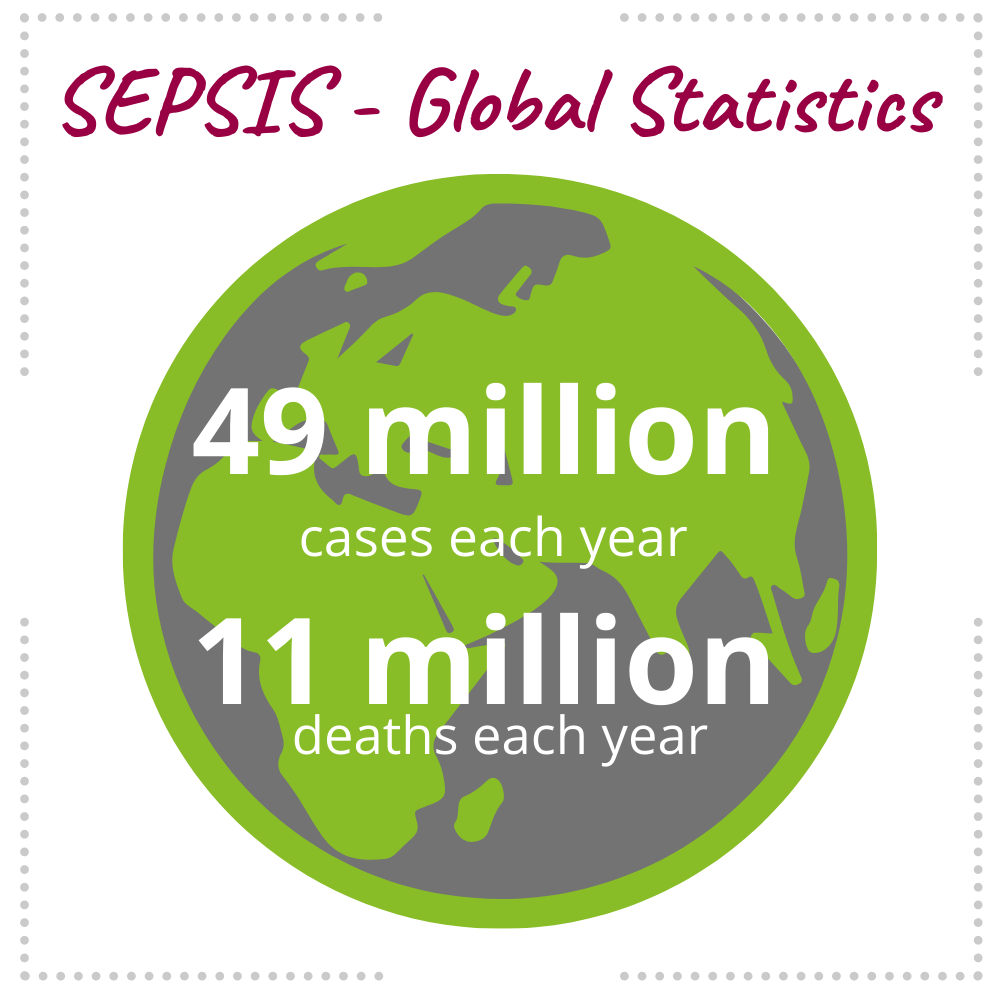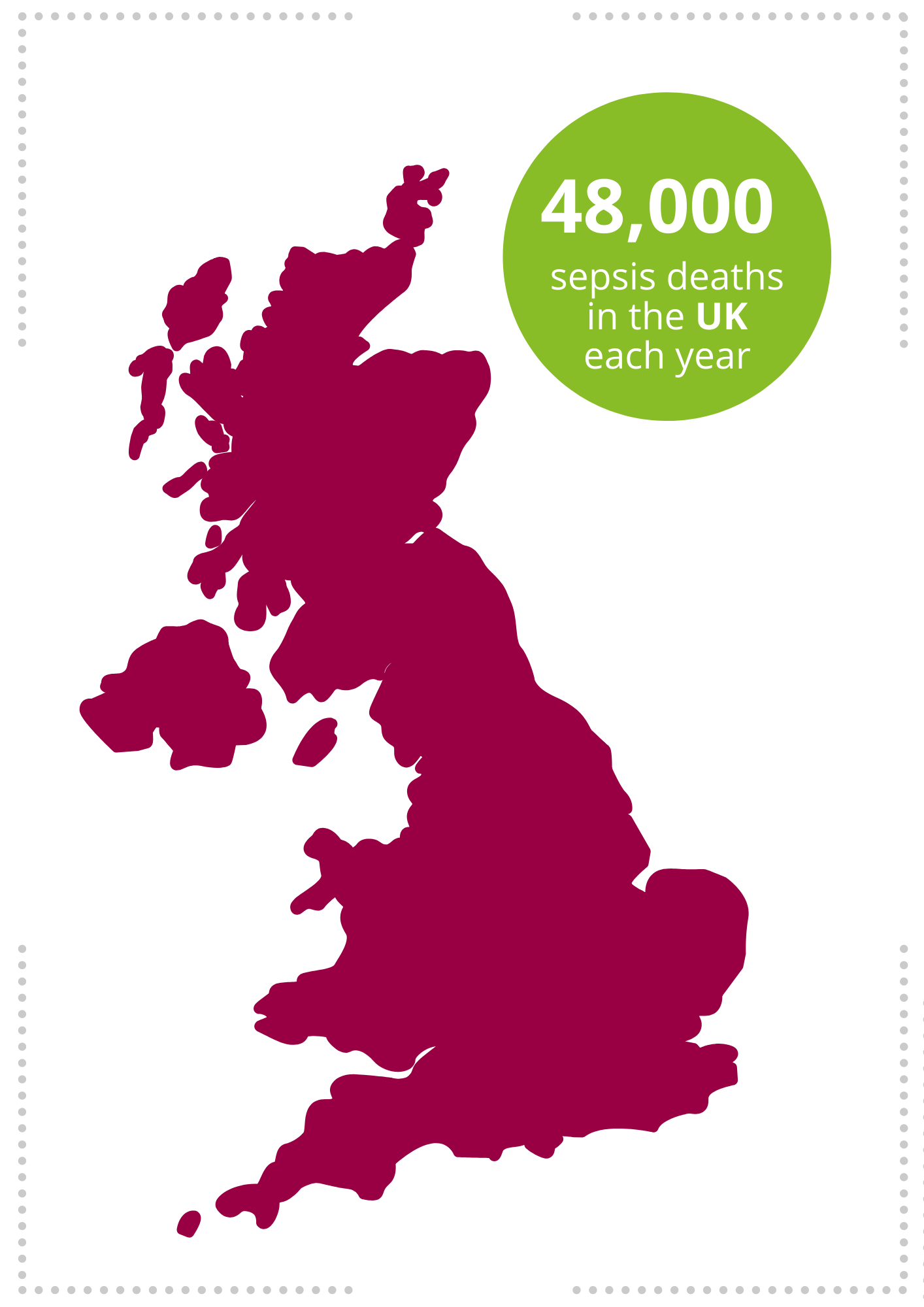1 in every 5 deaths around the world due to sepsis
- 27.01.2020
- LesleyHerbertson
- Clinical-negligence, Clinical-negligence

The report estimates that around 11 million individuals die each year from sepsis, also known as blood poisoning, which is more than those killed by cancer.
The research was carried out by a group at the University of Washington, who say that the “alarming” numbers were double previous estimates.
The majority of cases were seen in poor to middle income countries, but as we have seen in the media over the past year or so, even people in wealthier nations are contracting blood poisoning.
Why the sudden increase in sepsis cases?
Previously it has been estimated that globally there are 19 million cases of sepsis a year, with around 5 million deaths. However, these figures were based on just a handful of western countries.
This recent study, which was published in the Lancet and is based on the medical records from 195 countries, shows that the actual number of cases per year around the globe is closer to 49 million.
One of the researchers behind the study, assistant professor Kristina Rudd, said:
"I've worked in rural Uganda, and sepsis is what we saw every single day.
"My colleagues treating patients on the ground in low- and middle-income countries every day have been saying this for years, that sepsis is a major problem.
"So in a way I wasn't actually that surprised - on the other hand I didn't expect it to be double the previous estimate."
Despite the “alarming” high figures, there is some good news in that both cases of and deaths from sepsis have actually fallen since 1990.
The hope is that understanding the true scale of the problem will raise awareness and save more lives.

The study found that 85% of sepsis cases are in low- and middle-income nations, while children were most at risk with four in ten cases occurring in children younger than five.
However, the disease is also present in wealthier countries such as Spain, France and Canada. Meanwhile, there are around 48,000 deaths from sepsis in the UK each year alone according to the report, and the death rate in the UK is higher than those countries mentioned. That said, within the UK we have seen a massive push for more awareness within the NHS to faster identify the signs of sepsis and commence treatment.
What more can be done to stop sepsis?
Reducing the number of infections can reduce the number of cases of sepsis. For many poorer nations this means clean water, good sanitation and access to vaccines. While the other challenge at hand is to improve the identification of patients with sepsis in order to administer treatment before it is too late, as early treatment of infections through anti-biotics / anti-virals can make a huge difference.
Prof Mohsen Naghavi said: "We are alarmed to find sepsis deaths are much higher than previously estimated, especially as the condition is both preventable and treatable.
"We need renewed focus on sepsis prevention among newborns and on tackling antimicrobial resistance, an important driver of the condition."
Lesley Herbertson, Partner within our Clinical Negligence department, comments:
The sepsis statistics recently reported are clearly very worrying. Whilst in poorer countries it is perhaps not surprising that cases of sepsis might still be prevalent, it is shocking to note that it is also a significant cause of death in the UK. We see a number of cases in which signs and symptoms of infection and/or sepsis are missed or not spotted and treated soon enough, leading to severe illness or death.
It seems that work is being done to raise awareness about the possibility of sepsis in patients, amongst all medical professionals, in order to avoid unnecessary deaths and, hopefully, we will see a progressive drop in the number of fatalities related to the same.
Lesley is a Partner within our renowned Clinical Negligence department. To speak with Lesley or any other member of the team regarding Sepsis, Clinical Negligence or any other aspect of this article, please call 0800 027 2557 or fill out a contact form via the side of this page. Alternatively, you can contact Lesley directly here.
